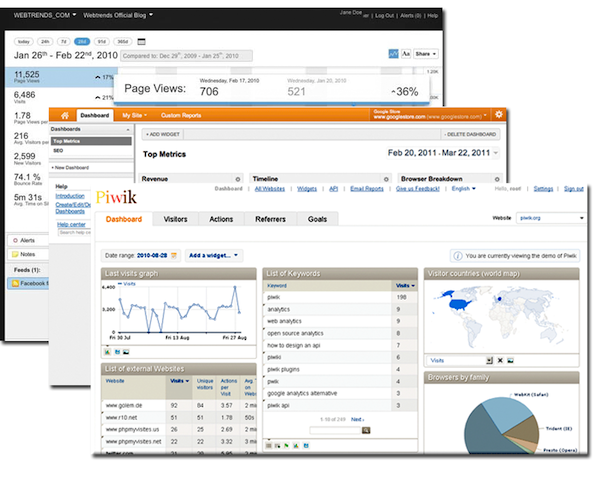
What do you use for your web analytics? For most people, it’s Google Analytics.
Many look at Google Analytics as the end-all, be-all. Others think of it is the only choice for low-cost (free) analytics.
While Google Analytics has its own set of merits, there are drawbacks. Many people don’t want to continue to feed Google more data – and this trend is growing.
The face of the analytics world changed for many of the do-it-yourself web analytics software packages last week. After nearly 14 years and an acquisition by Google, Urchin analytics software will be retired on March 28, 2012. The announcement appeared on both the Urchin home page and Google Analytics blog.
Urchin was one of the first good web analytics software options when it debuted. So much so that Google acquired Urchin Software Corp in April 2005 and released their own Google Analytics, later that year, based on Urchin’s analytics software.
However, Urchin maintained its own identity, releasing new features independently of Google Analytics. Google Analytics advanced throughout the years as Urchin versions were released. Urchin 6 was the first major release after Google acquired Urchin Software Corp. The differences were subtle. Yet each developed on their own.
By 2009, Google integrated AdWords into Urchin 6.5 and their own package. Urchin was a self-hosted solution for web analytics, while Google Analytics was obviously hosted on Google’s servers.
So if Google Analytics isn’t cutting it, and now Urchin is riding off into its sunset, what alternatives are there?
Hosted Web Analytics Solutions
Do you trust your web analytics data to others? When you choose a hosted solution, that is exactly what you’re doing. You insert JavaScript code provided by your software and it sends the data off to a server that collects the data to organize and store for later retrieval.
In a hosted solution, that collection server can be anywhere. This was evident in May 2009 when Google services – including Analytics – went down, bringing every website that used it with them. While asynchronous code has solved this issue for Google and many others, the data still goes off to the unknown. Regardless of the company, the data centers hosting you data could be literally anywhere in the world.
There’s a myriad of hosted web analytics solutions. Some are free, most are not. A few are priced as a flat, monthly rate while others offer a tiered pricing structure based on number of page views.
Many companies offer analytics software hosted as a service. Some common names in this space include Google, Webtrends and Adobe (formerly Omniture).
If you use a free, hosted service, who says it will continue to always be free? Will there be features added down the road for additional costs? Even if it does continue to be free, is there a price to pay in fine print? Will your stats be completely private? Will keywords or traffic volume be leaked to research sites, or worse yet, your competitors?
Self-Hosted Web Analytics Solutions
Self-hosted analytics will keep your data to your server. However, there is a certain amount of technical knowledge required to set it up. Once set up, however, these services are fairly easy to maintain and upgrade.
Similar to hosted services, self-hosted services provide you with JavaScript code to add to your site. However, the data collecting is done by a service that runs locally on your server. This means increased speed because the visitor doesn’t have to wait for a remote server to respond.
Most importantly, you control your data. It stays on your servers. You own it. You control it.
Self-hosted services like this come in both free and paid varieties. There are several open source packages also available. Some names you’ll find in this space include Mint, Piwik, and for a few more weeks, Urchin.
All Self-Hosted “Analytics” Are Not Created Equal
Beware of web log file analyzers. While they give decent data, the collection methods are much different. Log analyzers give you great information on what happens as visitors connect to your servers. However, actions they take once they receive a page from your site can’t be tracked. This includes interactive content consumption and the URL to where they exit.
Using the right web analytics software can make all the difference both in your visitors’ experience on your site and your insight to their experience afterward.
Does your organization host its own analytics data? Will the retiring of Urchin change your analytics plans?
